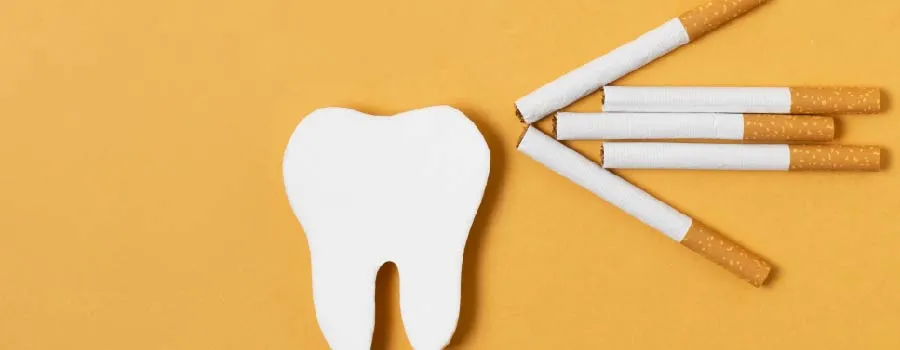Teeth extraction is a dental procedure that involves the removal of one’s teeth due to obvious damage or for fear of infections. It is usually done to prevent further damage to the gum or avoid the spread of infection to other teeth. Let us assume you just underwent a teeth extraction procedure; do you know the after-procedural measures to allow time for healing? Commonly, avoiding brushing your tooth after a tooth extraction is the top most precaution. But you must have heard your doctor mentioning it to you to quit smoking too. And you must be wondering why. Fortunately for you, this article explains why you shouldn’t smoke after tooth extractions.
The dangers of smoking after tooth extraction
According to recent studies, smoking after tooth extraction is associated with increased postoperative complications:
Delayed healing:
The vasoconstrictive effects of nicotine disrupt blood flow, reducing blood supply to the extraction site and impeding blood clot formation and stability, resulting in delayed tissue repair and bone regeneration. These disturbances expose the alveolar bone and nerves to external irritants, resulting in intense pain and increased susceptibility to infection, both hallmarks of alveolitis.
Increased risk of infection:
Smoking has been identified as a predisposing factor for postoperative infections. The weakened immune response in smokers makes them more susceptible to bacterial colonization at the extraction site. Scientific research has demonstrated the higher incidence of infection in smokers, which can lead to longer recovery times and additional complications.
Increased pain perception:
Smoking has been associated with an increased perception of pain after dental procedures. Smokers may therefore experience higher levels of pain after tooth extraction than non-smokers. This increased sensitivity to pain may impact on the overall patient experience and require additional pain management strategies.
Compromised periodontal health:
Smoking is a known risk factor for periodontal disease. Thus, after tooth extraction, smokers are at greater risk of developing complications related to compromised periodontal health. These include problems such as gingival recession, soft tissue inflammation and increased susceptibility to further tooth loss.
Long-term effects of smoking after extractions
A common long-term effect of smoking is that it can increase your risk of gum disease and pave way for more tooth loss down the road. If you’re considering quitting smoking, now’s a good time to think about it. Your teeth and gums will thank you in the long run.
Tips to quit smoking after tooth extractions
 We understand the challenges of quitting smoking after a tooth extraction, which is why we have a list of tips to help you:
We understand the challenges of quitting smoking after a tooth extraction, which is why we have a list of tips to help you:
- Avoid smoking for the first 72 hours after your procedure. The is to allow time for a proper clotting process around the affected tooth area.
- Focus on chewing gums instead. However, be careful to not chew nicotine-containing gums as they will have the same effects on your gums as with smoking.
- After 72 hours of the tooth extraction and you are ready to smoke, avoid applying too much pressure while smoking.
- You can try nicotine replacement therapy or talk to a professional for guidance.
- Don’t go at it alone; some programs and professionals specialize in helping people quit smoking.
Read also : Post Tooth-Extraction Care: Precautions and Dietary Guidelines
Dental care and maintenance after extractions
Taking care of your mouth after a tooth extraction is essential for tooth healing. A good way to begin post-extraction maintenance is to keep your mouth clean and avoid irritation around the extraction site. You can do this by using a prescribed antimicrobial mouthwash 2 – 3 times daily. Of course, your dentist will give you specific instructions, so be sure to follow them. Don’t skip those follow-up appointments with your dentist either; they’re crucial for monitoring your progress and addressing any concerns. Most importantly, do not replace smoking with vaping as they both produce similar suction power enough to destroy the healing plug. Finally, avoid any strenuous activity for the next 72 hours after your extraction to avoid post-operative bleeding. Read also : What to eat after dental implant surgery
To wrap it up
In a nutshell, smoking after tooth extractions poses several risks to your dental health. It can slow down healing, increase your risk of complications, and harm your long-term oral health. Consider quitting smoking or seeking support with us at the Dentakay clinic if you’re ready to kick the habit. Your oral health—and your overall health—will thank you.


















































